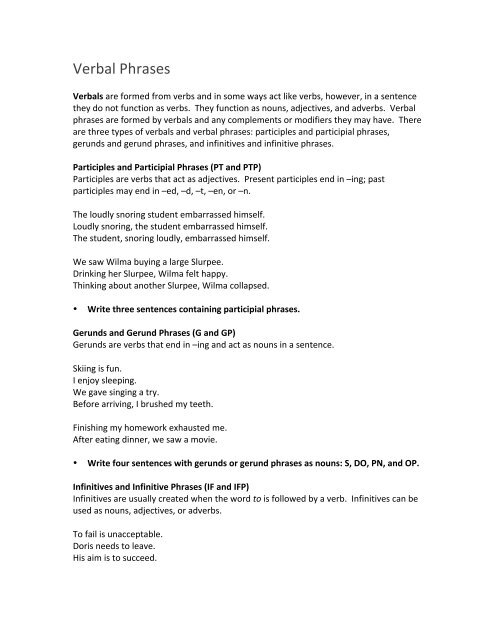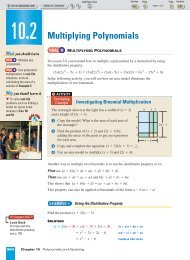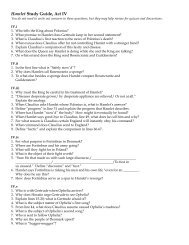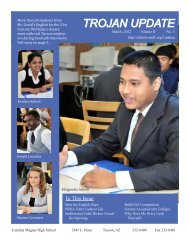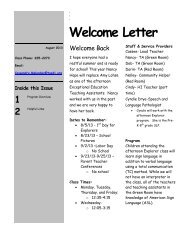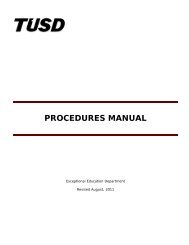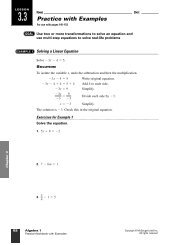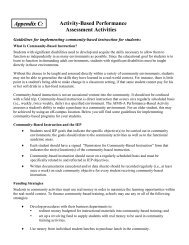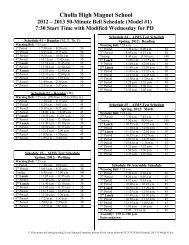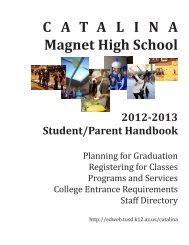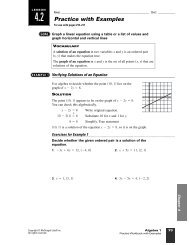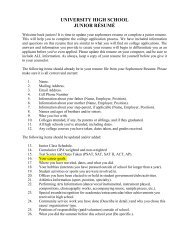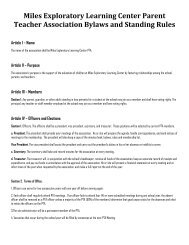verbal phrases
verbal phrases
verbal phrases
You also want an ePaper? Increase the reach of your titles
YUMPU automatically turns print PDFs into web optimized ePapers that Google loves.
Verbal Phrases <br />
<br />
Verbals are formed from verbs and in some ways act like verbs, however, in a sentence <br />
they do not function as verbs. They function as nouns, adjectives, and adverbs. Verbal <br />
<strong>phrases</strong> are formed by <strong>verbal</strong>s and any complements or modifiers they may have. There <br />
are three types of <strong>verbal</strong>s and <strong>verbal</strong> <strong>phrases</strong>: participles and participial <strong>phrases</strong>, <br />
gerunds and gerund <strong>phrases</strong>, and infinitives and infinitive <strong>phrases</strong>. <br />
<br />
Participles and Participial Phrases (PT and PTP) <br />
Participles are verbs that act as adjectives. Present participles end in –ing; past <br />
participles may end in –ed, –d, –t, –en, or –n. <br />
<br />
The loudly snoring student embarrassed himself. <br />
Loudly snoring, the student embarrassed himself. <br />
The student, snoring loudly, embarrassed himself. <br />
<br />
We saw Wilma buying a large Slurpee. <br />
Drinking her Slurpee, Wilma felt happy. <br />
Thinking about another Slurpee, Wilma collapsed. <br />
<br />
• Write three sentences containing participial <strong>phrases</strong>. <br />
<br />
Gerunds and Gerund Phrases (G and GP) <br />
Gerunds are verbs that end in –ing and act as nouns in a sentence. <br />
<br />
Skiing is fun. <br />
I enjoy sleeping. <br />
We gave singing a try. <br />
Before arriving, I brushed my teeth. <br />
<br />
Finishing my homework exhausted me. <br />
After eating dinner, we saw a movie. <br />
<br />
• Write four sentences with gerunds or gerund <strong>phrases</strong> as nouns: S, DO, PN, and OP. <br />
<br />
Infinitives and Infinitive Phrases (IF and IFP) <br />
Infinitives are usually created when the word to is followed by a verb. Infinitives can be <br />
used as nouns, adjectives, or adverbs. <br />
<br />
To fail is unacceptable. <br />
Doris needs to leave. <br />
His aim is to succeed. <br />
Misty is the person to ask. <br />
<br />
We left to eat. <br />
<br />
We helped fix the faucet. <br />
The spices made her cough. <br />
<br />
To ride a bike is to know freedom. <br />
Murphy forgot to film the wedding. <br />
To steal stealthily, Maureen trained for several years. <br />
The need to buy a gift has given us pause. <br />
<br />
To go to the store, you need to take Speedway. <br />
<br />
• Write three sentences with infinitives or infinitive <strong>phrases</strong> as nouns: S, DO, PN. <br />
<br />
• Write two sentences with infinitives or infinitive <strong>phrases</strong> as modifiers: ADV, ADJ. <br />


